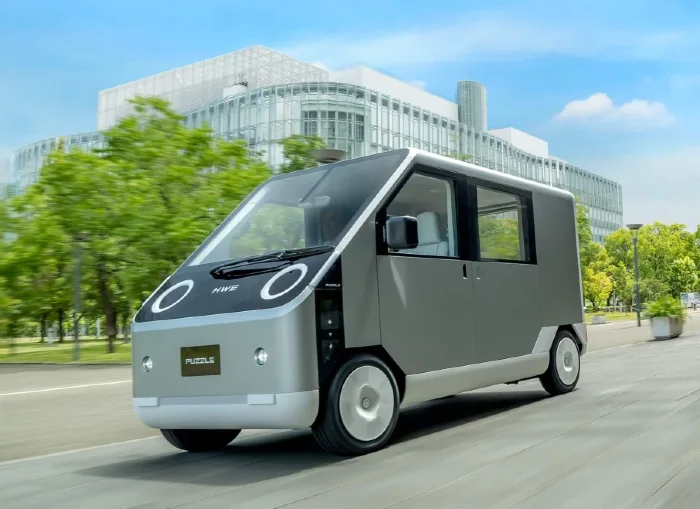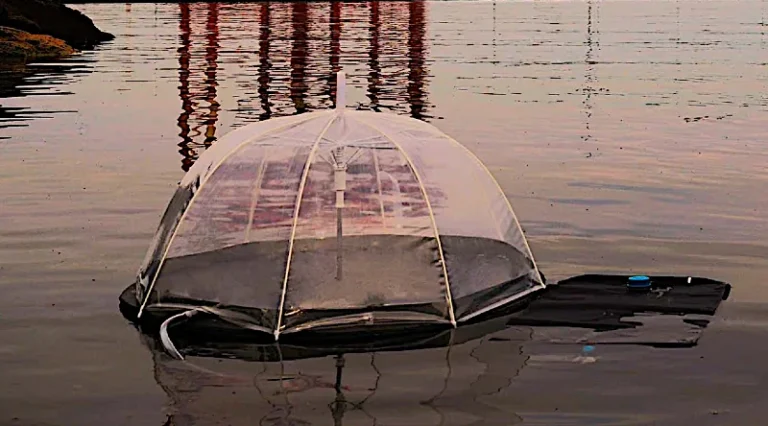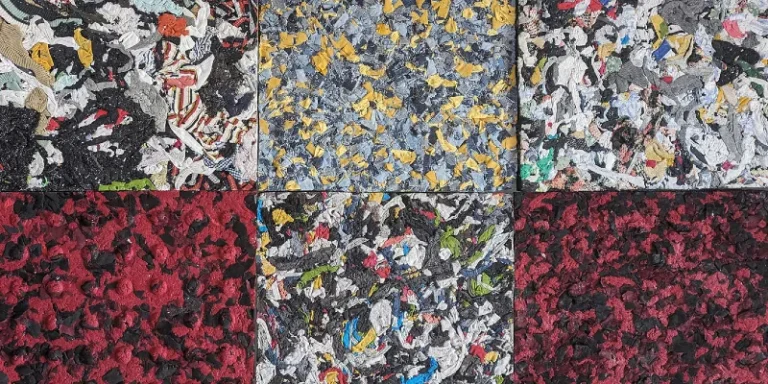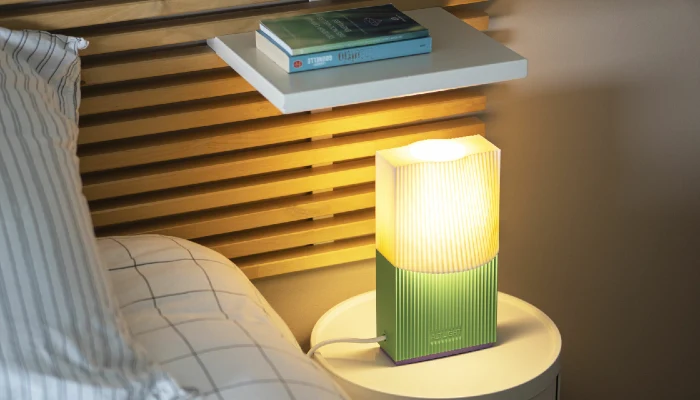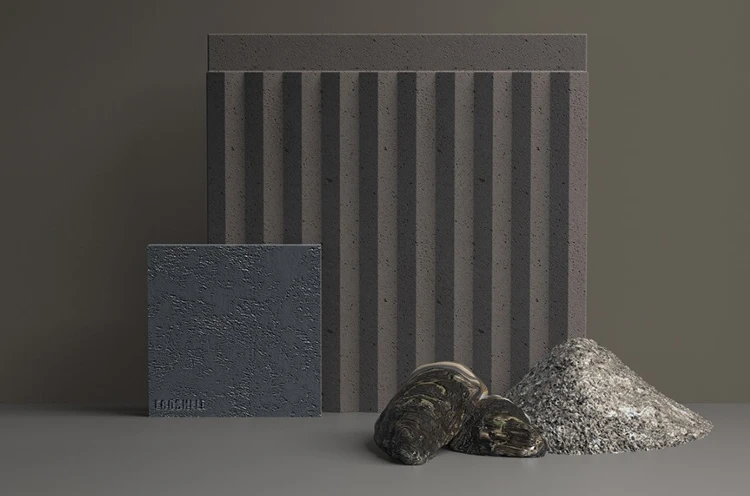Electric vehicles (EVs) are rapidly evolving, but the Puzzle by HW Electro, a compact Japanese electric van, is a game-changer in sustainable automotive design. This concept, inspired by the adaptability of puzzles, heralds a future where cars aren’t just energy-efficient but also highly customizable.
Why Modular Design Matters
The idea of a modular vehicle might seem futuristic, but it’s grounded in practicality. In the Puzzle, modularity isn’t about overhauling entire car components. Instead, it focuses on swapping out specific panels – sides, corners, and interiors. This approach to car design isn’t just about aesthetics; it offers tangible benefits:
- Ease of Repair: Damaged panels can be replaced individually, reducing maintenance costs.
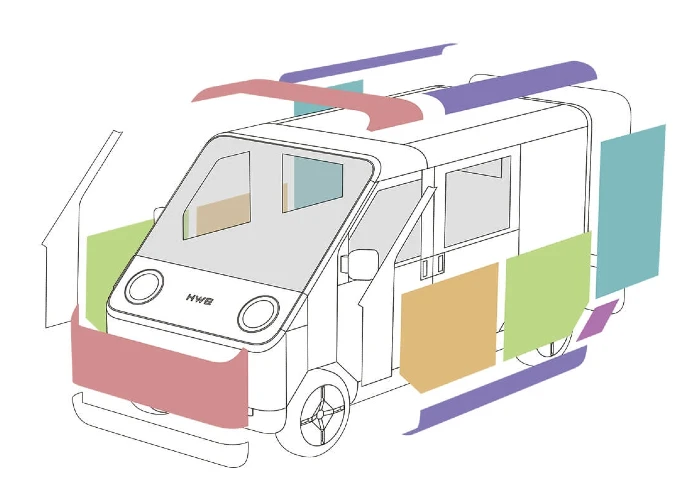
- Customization: Owners can modify their vehicle to suit changing needs or preferences.
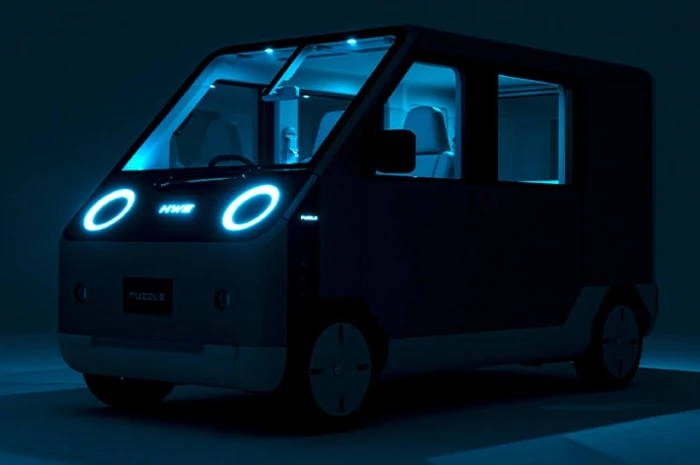
- Sustainability: Modular parts mean less waste and more efficient use of resources.
Inside the Puzzle: A Space of Possibilities
The Puzzle’s design, reminiscent of Japan’s Kei cars, optimizes space while maintaining a compact footprint. This balance is perfect for urban environments where parking and maneuverability are crucial.
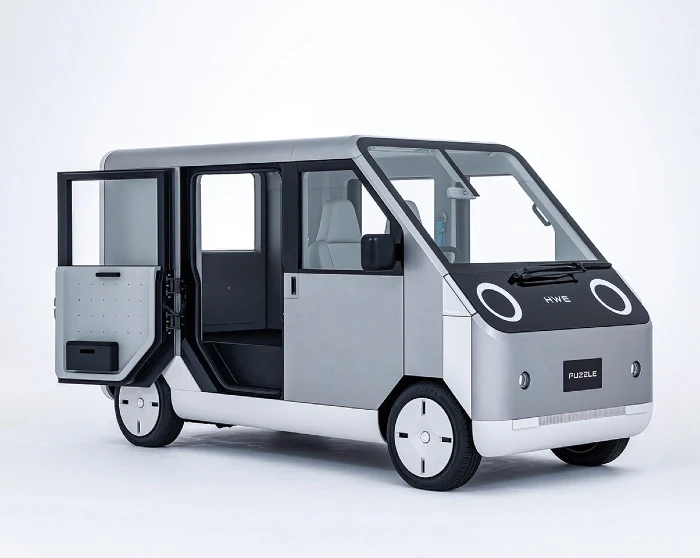
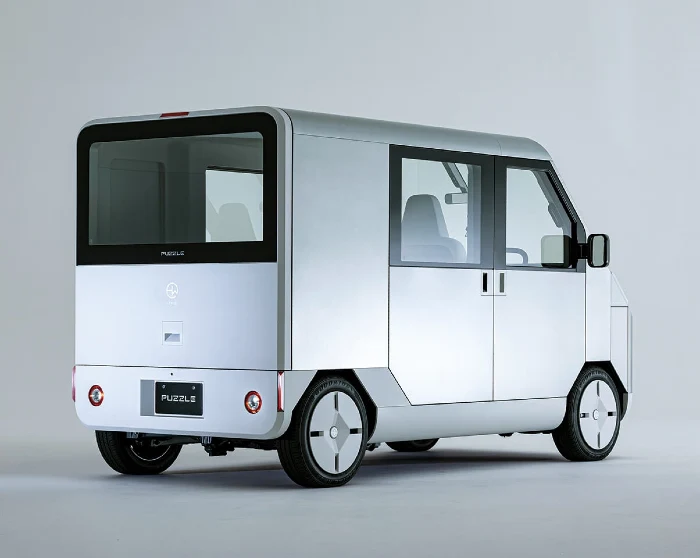
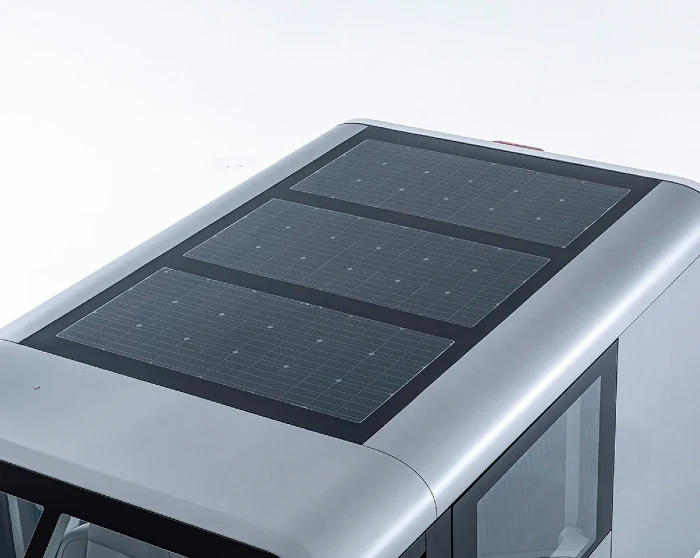
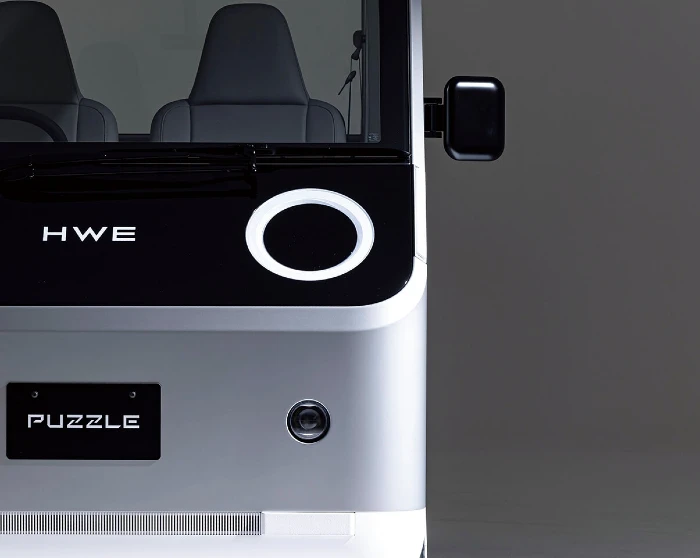
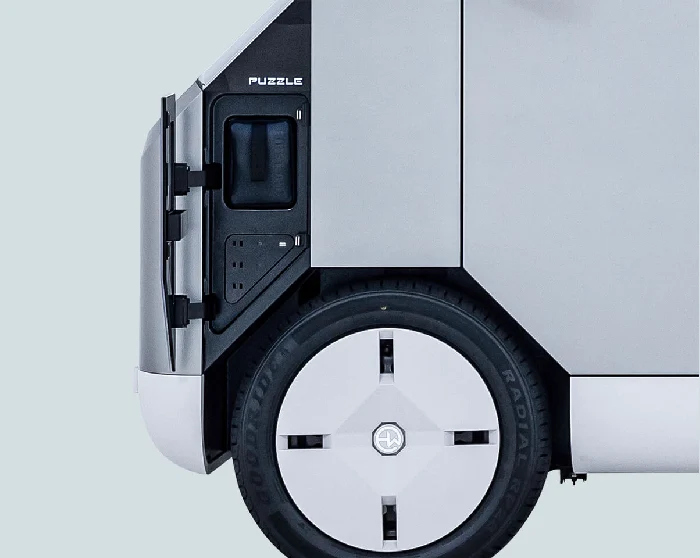
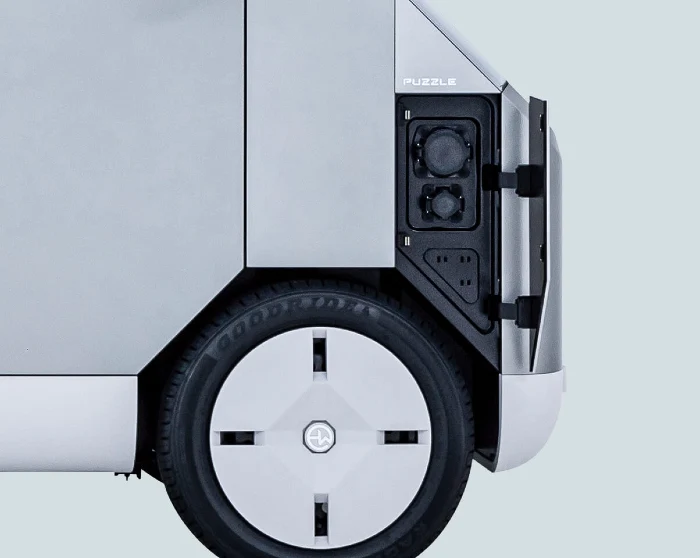
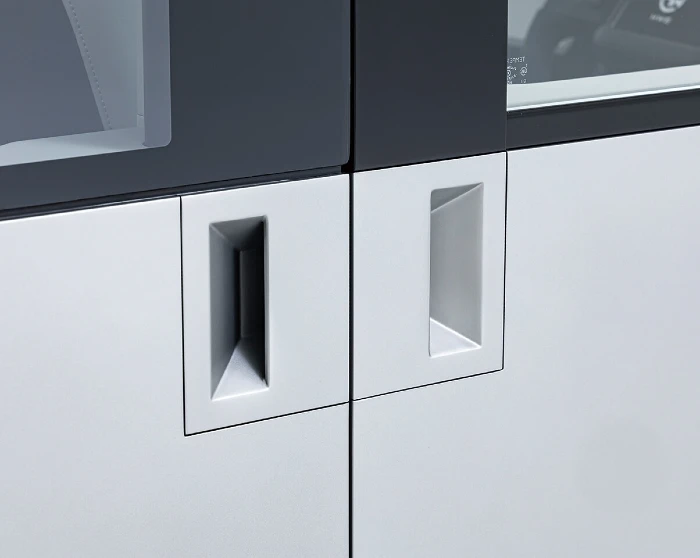
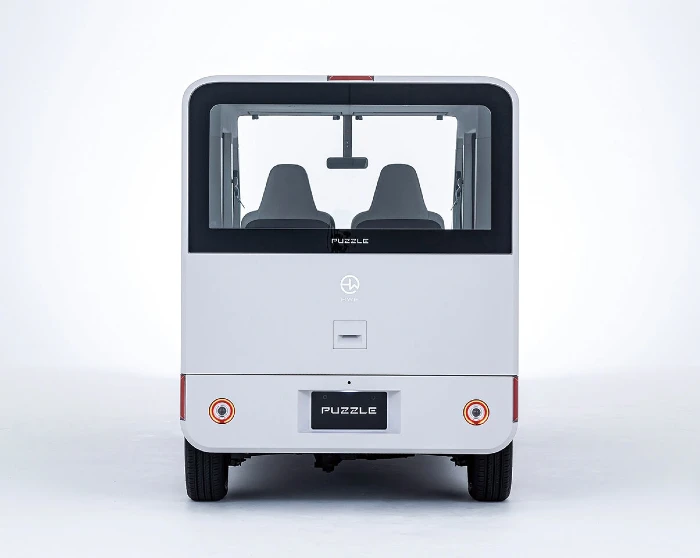
The vehicle’s boxy shape isn’t just for show; it’s a key to its functionality:
- Spacious Interior: The van’s design maximizes cabin space, making it versatile for both personal and commercial use.
- Solar Power Integration: The flat roof is ideal for housing solar panels, further enhancing its eco-friendliness and reducing reliance on charging stations. Check out the exterior, including the solar panel roof, in the slide gallery above.
The Puzzle’s interior mirrors its exterior in flexibility and innovation. With modular slots in door panels and dashboards, users can add or remove features like storage compartments and cupholders.
This design ethos extends to the cargo area, optimized for space efficiency, making the Puzzle an ideal choice for delivery services.
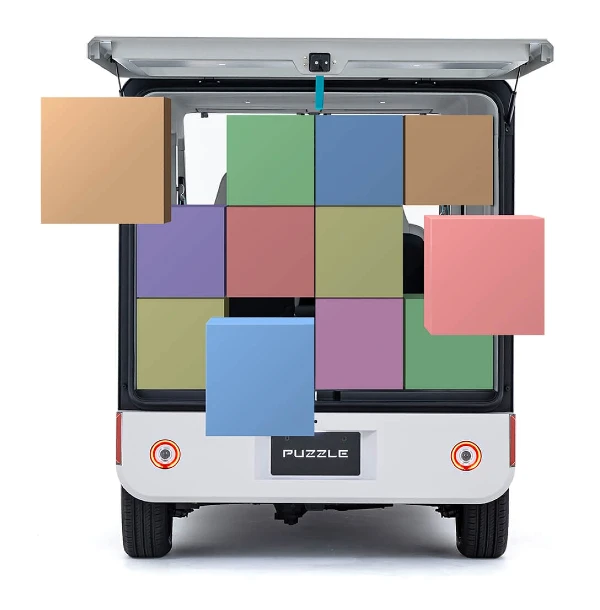
Sustainability in the Spotlight
The Puzzle van isn’t just another electric vehicle; it’s a testament to sustainable product design. Here’s how it stands out:
More To Discover
- Oil and Corn Giants Unite in Unlikely, And Unnecessary, Alliance Against Electric Cars
- Plant-Based Leather Lighting Casts Shine On Design Sustainability
- LEGO-Like Concrete Blocks Made from Waste Could Reinvent Construction
- This Designer Is Upcycling PET Bottles To Sustainably Light the Future with Sound
- Material Efficiency: Modular design means less material waste during manufacturing and repairs.
- Energy Efficiency: The use of solar panels and a battery-powered engine reduces the carbon footprint.
- Lifecycle Sustainability: The ability to replace and upgrade parts extends the vehicle’s lifespan, contrasting with the disposable culture prevalent in traditional car manufacturing.
The Puzzle by HW Electro is a bold, albeit unattractive step towards all-encompassing sustainable design. Embodying minimalism and practicality, it challenges the status quo of automotive design, offering a glimpse into a future where our vehicles are as adaptable and eco-friendly as our aspirations. We believe the overall concept has merit and that more designers can take this idea and create more appealing designs that will carry interest beyond just the devoutly eco-conscious.
Meet The Designer: HW Electro
HW Electro Co Ltd manufactures and sells electric vehicles in Japan.







